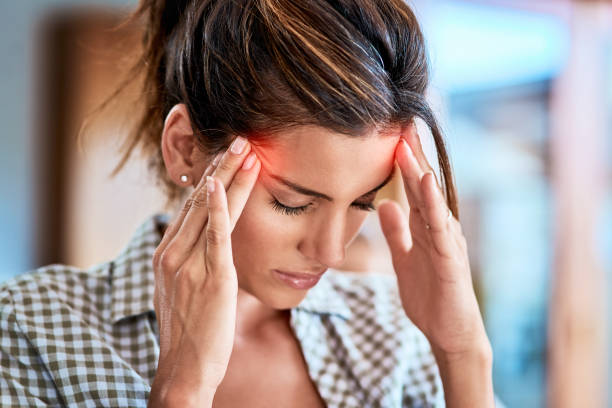A migraine is a neurological condition that causes a pulsing sensation or severe throbbing pain, usually on one side of the head. Migraine attacks are characterised by an extreme sensitivity to sound and light, with symptoms like nausea, dizziness, and vomiting. They can last for hours to days, and the condition can be so bad that it will interfere with your daily activities.
Migraine isn’t caused by any underlying condition and it can affect people of all ages and in different ways; the triggers, frequency, severity, and symptoms may vary. Some people may have it occasionally, while others may have more than one occurrence weekly.
Causes
The causes of migraines are not fully understood. Some environmental and genetic factors can play a role. Imbalances in brain chemicals such as serotonin and changes in the brainstem and its interactions with the trigeminal nerve might also play a role. The exact causes are yet to be determined, but there are some triggers that can significantly increase a person’s chances of having migraines; these triggers include
- Hormonal changes in women.
- Drinks.
- Physical strain.
- Food.
- Medication.
- Stress.
- Sensory stimuli.
- Food additives.
- Sleep changes.
- Whether changes.
- Jet lag.
- Lack of sleep.
- Neck and shoulder tension.
- Dehydration
- Low blood sugar.
Symptoms of Migraine
Migraines can progress through four stages with different symptoms: prodrome, aura, attack and post-drome. However, some people do not go through all the stages.
Prodrome
Some days before a migraine begins, you might notice mild symptoms that can warn you about it. Such symptoms include
- Mood changes from depression to euphoria.
- Constipation.
- Food cravings.
- Fluid retention.
- Neck stiffness.
- Frequent yawning.
- Increased urination.
Aura
Some people may have an aura before or during a migraine; auras are visual and reversible symptoms of the nervous system. They often begin gradually and build up over time, and they can last up to an hour. Some common examples of aura include
- Vision loss.
- Visual phenomena, such as seeing bright spots, various shapes, or flashes of light.
- Weakness or numbness in the face or one side of the body.
- Pins and needles sensations in an arm or leg.
- Difficulty speaking.
Attack
This is the actual period of a migraine; it can last up to 4 hours or even days if left untreated. However, the duration varies from person to person and can occur rarely or several times a month.
The symptoms that occur during a migraine include:
- Pain that throbs or pulses.
- Pain is usually on one side of the head but sometimes on both sides.
- Nausea and vomiting.
- Sensitivity to light, sound, and sometimes smell and touch.
Postdrome
After a migraine attack, it is normal to feel drained, washed out or confused for some hours; some people may also feel elated; however, strenuous activity or sudden head movement may bring back the pain briefly.
Treatment
There is no cure for migraines, but some pain relief and other medications can help reduce the symptoms when they arise. People can also take steps to reduce the severity and frequency. Also, keep in mind that taking drugs as soon as you notice symptoms can stop the condition from becoming severe.
Some supplements, physical therapy, acupuncture, neck exercise and herbal extracts can also help relieve the symptoms of migraines.



